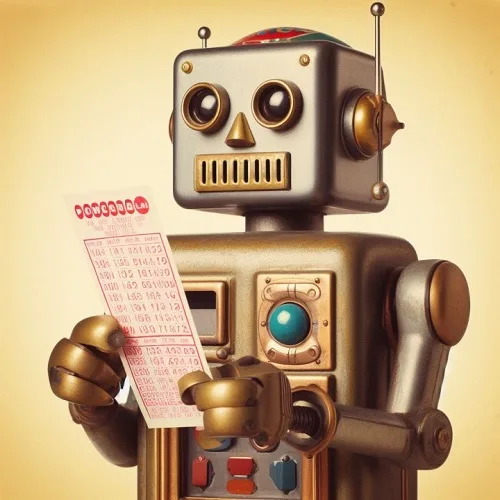
How AI Can Change Lotteries
Artificial intelligence (AI) has become an influential force across various industries, and the lottery sector is no exception. The integration of AI into lotteries promises to transform how these games are played, managed, and perceived by the public. This article delves into the technological advancements in AI and their implications for the lottery industry.
Technological Innovations in AI and Their Emergence
Artificial intelligence, as a field of study and application, has seen significant advancements since its inception in the mid-20th century. Initially, AI research focused on basic problem-solving and symbolic methods. However, with the advent of machine learning and neural networks in the late 20th and early 21st centuries, AI capabilities have expanded dramatically. Technologies such as deep learning, natural language processing, and data analytics have enabled AI systems to perform tasks that were previously thought to be exclusively human domains.
The application of AI in lotteries has become more pronounced in the last decade, coinciding with the widespread availability of large datasets and enhanced computational power. These advancements have allowed AI to be used for predictive analytics, player behavior analysis, and even fraud detection in lotteries. As a result, the lottery industry is on the cusp of a technological revolution that could redefine its operations and offerings.
Key Features of AI in Lotteries
One of the standout features of AI in lotteries is its ability to process and analyze vast amounts of data rapidly and accurately. AI algorithms can scrutinize historical lottery data, identify patterns, and predict outcomes with a degree of accuracy that surpasses traditional methods. This capability is particularly useful in creating smarter, fairer, and more transparent lottery systems.
Another significant feature is AI’s role in enhancing player experience and engagement. AI-driven chatbots and virtual assistants can provide personalized customer support, answer queries in real-time, and guide players through the lottery processes. Furthermore, AI can help in tailoring marketing strategies based on player preferences and behavior, thereby increasing participation and satisfaction.
The Challenges of Implementing AI in Lotteries
While the benefits of AI in lotteries are clear, implementing these technologies is not without challenges. One major hurdle is the need for significant investment in infrastructure and training. Lottery operators must ensure their systems can handle the sophisticated AI algorithms and the large datasets required for effective analysis. Additionally, staff need to be trained to manage and maintain these AI systems, which can be a costly and time-consuming process.

Effectiveness of AI in Lotteries
The effectiveness of AI in lotteries can be measured across several dimensions. Firstly, AI has proven to be highly effective in detecting and preventing fraudulent activities. By analyzing transaction patterns and player behavior, AI systems can identify anomalies that may indicate fraudulent activities, thus enhancing the integrity of the lottery.
Secondly, AI’s predictive analytics capabilities can improve the fairness and transparency of lottery draws. By ensuring that the number generation process is truly random and free from manipulation, AI can help maintain public trust in the lottery system.
Moreover, AI has been instrumental in optimizing lottery operations. From streamlining ticket sales and distribution to managing prize payouts, AI can automate and enhance various operational aspects, reducing costs and increasing efficiency.
Finally, AI-driven personalized marketing strategies have shown to significantly boost player engagement. By understanding player preferences and behavior, AI can tailor marketing efforts, making them more effective and appealing to different segments of the player base.
Future Prospects of AI in Lotteries
Looking ahead, the integration of AI in lotteries is set to deepen. Future AI advancements could lead to even more sophisticated predictive models, further enhancing the accuracy of lottery outcome predictions. Additionally, AI could play a pivotal role in the development of new lottery formats and games, offering players more exciting and varied experiences.
There is also potential for AI to enhance regulatory compliance in lotteries. By continuously monitoring and analyzing operations, AI systems can ensure that lottery operators adhere to legal and ethical standards, thereby protecting players and maintaining industry credibility.
In conclusion, the adoption of AI in the lottery industry heralds a new era of innovation and improvement. As AI technologies continue to evolve, their impact on lotteries will likely expand, bringing about a more secure, efficient, and engaging lottery experience for all players.
